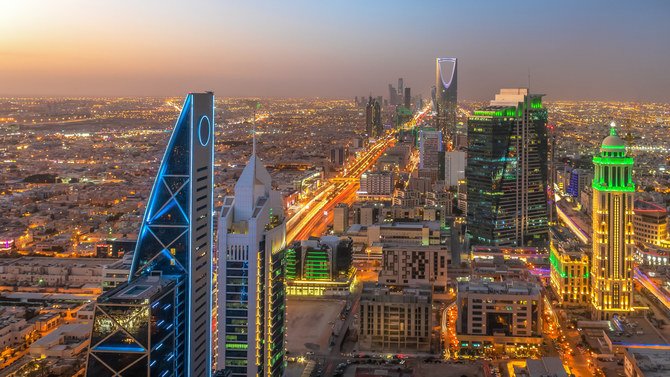
- ARAB NEWS
- 18 Jul 2025

Frank Kane
DUBAI: Thought leaders in sustainable investment will gather virtually in Riyadh on Thursday to explore one of the hottest topics in the world of finance — the move to environmental, social and governance (ESG) benchmarks by big global investors.
The event, under the auspices of the Future Investment Initiative (FII) Institute, will focus attention on sustainable investment in the post-pandemic recovery, and the role of emerging markets like Saudi Arabia within the new investment philosophy.
ESG investing has recently taken off, attracting hundreds of billions of dollars into funds that pledge to weigh broader considerations when deciding where to put their money, rather than mere cash returns.
Richard Attias, chief executive of the FII Institute, said: “Although ESG has proven its worth, much remains to be done to ensure we use it to its full potential. The low level of inclusion and participation of emerging markets in the development of ESG frameworks is counterproductive to global sustainability.
“Perhaps the most challenging task, and one that we will address during this event, is how we push ourselves to think beyond ESG as a risk management tool and deploy it to create a truly sustainable future,” he added.
Although sustainable investment has been advocated as a concept for many years, it has taken off recently against the background of the COVID-19 pandemic, which persuaded many traditional big investors to look again at their basic criteria.
The most significant recent convert to the new thinking has been Larry Fink of giant investment manager BlackRock, who promised to divert funds into ESG sectors and away from traditional investment areas, particularly in the area of climate change.
“The risks that climate change poses to the world of finance can no longer be ignored,” Fink wrote in his annual letter to global chief executives.
Many investment managers seem to have agreed with the BlackRock boss. Figures from Refinitiv, the data provider, show that flows into ESG funds totaled around SR562.6 billion ($150 billion) in the final quarter of 2020 alone, twice as much as the same period in 2019 before the pandemic.
But global investment flows are not even, recent research has shown. By far the biggest assets in ESG funds are held in Europe, with a total of $1.34 trillion, according to financial industry analysts. This compares with only $236 billion in the US, and a meager $65 billion in the rest of the world, including the Middle East.
“The event will offer insights into how to boost participation of emerging markets in ESG and also deep dive into the role of ESG across corporations, retail investing, and monetary policy in pursuit of a sustainable world,” the FII Institute said.
The delegates will be addressed by Yasir Al-Rumayyan, governor of Saudi Arabia’s Public Investment Fund, which has incorporated ESG principles into its $400 billion worth of global investments.
It will also hear from Bandar Hajjar, president of the Islamic Development Bank, and Noel Quinn, chief executive of HSBC, which recently decided to cease investment in coal assets, as well as senior executives from leading financial institutions in Asia and Africa.
Despite the fast-rising investment trend in some parts of the world, there are still areas of disagreement worldwide on what constitutes fair ESG standards.
Khalid Abdullah Al-Hussan, the CEO of the Saudi Stock Exchange (Tadawul), said recently: “There are several standards applied worldwide, and a method applied in one country is not necessarily suitable for another. The agencies must consider local criteria while evaluating ESG in emerging markets.”
That issue is particularly relevant in the Arabian Gulf, where the bulk of investments are in oil and gas-related assets, which have come under attack from ESG activists with calls to divest from so-called “fossil fuel” investments.
But there are signs the new investment principles are beginning to catch on among regional investors, especially from the younger generation.
A recent survey by Barclays Private Bank found that nearly 60 percent of investors from Arab family offices were heading into more sustainable investment directions, in many cases prompted by concerns of younger family members.
“The report findings reflect that 76 percent of all respondents in the Middle East state that responsible investing is important to their family,” said Rahim Daya, head of private banking at Barclays in the Middle East.